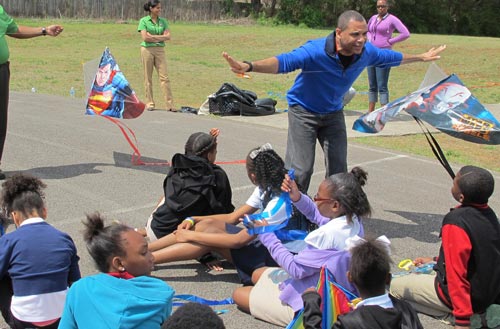
Parental Choice in Education – Do Parents Have a “Fundamental Right” to Choose the Type of Education Their Child Receives?
THERE ARE DIFFERENT SCHOOLS FOR DIFFERENT LEARNERS
It would be foolhardy to assume that all students will do well in the same educational setting.
That said, parental choice in education has been undercut for years. As a result, countless students who could have excelled in alternative schools had no viable options. Many dropped out. The majority forfeited their chances at a good future. There’s now a movement for paretns to take back control.
WHY THE PARENTAL RIGHTS AMENDMENT MAKES SENSE
Initially, parents had the right and obligation to see after their children’s education. Lawmakers reasoned that parents knew what was best for their children, therefore, they should have a say in how they would be educated to ensure their children would receive a good learning experience suited to them.
In fact, parental rights were considered so important, they are protected by the Fourteenth Amendment which guarantees the right of the individual …”to establish a home and bring up children, to worship God according to his own conscience.”
Because of this protection, the Supreme Court has given parental rights the highest respect and protection possible.
In fact, the Court has traditionally ruled in favor of the protecting parents’ fundamental right to direct the education and upbringing of their children.
Then, there came the 2000 court decision that undermined parents’ rights considerably. It considered parental input as valid but subject to being overridden if it would be best for the child.
However, it is questionable who makes the determination about what is in a child’s best interest. In the absence of a specified individual, this entity now becomes the state. Since then, parental influence on the educational system has been dramatically diminished.
HOW THE AMENDMENT WOULD CHANGE THE STATUS QUO
At this point, there is no clear direction. Although some states are more progressive in their understanding of parental rights protection, others are not. Therefore, any situation can result in a prolonged court battle.
Similarly, judicial, racial, and socioeconomic bias can taint decisions. This minimizes the protection of children who are currently lost in an education system that does not work for them.
Examples include students who do not speak English as a first language. Next, there are students with a variety of learning disabilities and disorders. Most importantly, there are learners with mental health challenges that may not be visible. Besides that, some students just cannot withstand the pressure, social structure, and sometimes-unmitigated bullying that has taken hold in the school system.
Every parent should have the right to remove a student when a school is not performing well. Rather than claiming that the child is not meeting standards, there is the possibility that the school is not meeting the student’s needs.
When a parent right to choose school attendance is in question, then the education system fails the student on multiple levels.
EMBRACING THE ALTERNATIVE

Educational alternatives look different for everyone. There are religious schools with faith-based curricula that meet the needs of youngsters who grow up in particular belief systems. For them, standard public school education can be detrimental to developing healthy self-esteem.
There are also students who face personal challenges. Some have to supplement their families’ incomes because a parent suffered a disability. Maybe the student had a child. Some grapple with substance abuse or co-occurring mental health conditions. As a result, they lose time in school because they undergo treatment.
The standard public school will write off these students. This is not the case for the alternative school setting that embraces these learners.
In this learning environment, the curriculum fits the student:
- CLASSROOM-BASED SESSIONS.
- Day or evening classes offer the education that the learner missed. However, it is now available in easy-to-attend four-hour chunks. Evening classes accommodate working learners.
- HOMEWORK AUGMENTATION.
- By committing to attending class four hours a day for three days a week and doing the same amount of homework over the course of seven days, students catch up quickly. Staying on track is not only possible but also easy.
- HOME-BASED PROGRAMS.
- Online school lets the student set the pace. Certified teachers provide guidance. Accreditation ensures the right rigor. When disabilities or daily responsibilities keep the learner out of the school, it comes to her or him via the computer.
- OPEN ENROLLMENT FOR CITIZENS, RESIDENTS, AND INTERNATIONAL STUDENTS.
- Nobody is excluded from receiving an education. Everyone can participate. This is the goal of an alternative school that attempts to get every learner to become college-ready.
Alternative schools of this caliber should be accessible to all students.
Most importantly, any parent must have the legal right to remove a high school student who is failing. Preferably, this step should be taken before academic failure is catastrophic.
By catching problems early, it is easy for the teen to make up the missing credits and remain in step with peers. When it takes too long to cut through red tape, the student pays the price.
There is added stress. Besides that, the learner may be so discouraged at that point that it may not be possible to motivate her or him to give it one more shot in a different setting. Reaching the student before it is too late is of vital importance. However, if parents are afraid of interfering in this way, who will advocate for the student?
FIND OUT MORE ABOUT PARENTAL CHOICE IN EDUCATION.
While the Parental Rights Amendment might be only one step in the right direction, it is most certainly a beginning. It can offer standing and empowerment where there were none. Similarly, it can remove bias and enable parents to advocate for their children without fear of repercussions or lengthy – and expensive – court battles.
TO LEARN MORE ABOUT ALTERNATIVE EDUCATION, AND HOW IT CAN BE THE ANSWER IF YOUR CHILD IS STRUGGLING WITH THEIR CURRENT HIGH SCHOOL, CONNECT WITH THE AMERICAN HIGH SCHOOL ACADEMY.
American High School Academy, is a private, fully accredited high school based in Miami, Florida that offers both online and classroom high school courses. We also offer credit recovery, dual enrollment, and study abroad programs among others.
Contact us if you need help deciding or just wish to talk to someone who can answer your questions. We’re here to help!
YOUR CHOICE FOR PROGRAMS TAILORED TO YOUR STUDENT
Admissions or Program Questions?
We're Here to Help!

Most students are referred to American High School Academy by their home school district. However, students and family members can contact us directly to learn more or to enroll in our programs.
Contact us Monday - Friday from 9:00 am - 5:00 pm and Saturday 9:00 am to Noon or use our online form to request an appointment to speak with an Admissions Advisor.
